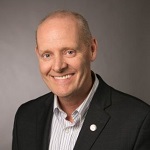By Dr. Don Capener
Is academic excellence always subjective?

Most observers would say yes; academic excellence is subjective because it is sometimes difficult to measure improvement in higher education and agree on the most important outcomes.
Another way to measure the improvement “factor” is through the use of pre- and post- oral exams. Here, the learner must solve problems extemporaneously. Others measurable outcomes are how often faculty members are published in competitive academic journals, claiming that this demonstrates preeminence or academic excellence. But can this measurable outcome inspire excellence in their students if they don’t read or have access to such research?
Consider for a moment that employers generally don’t focus on the scholarly work of a college’s faculty. Company leaders and headhunters prefer to measure how a school’s graduates perform in the workplace versus similar schools. This informs any judgements the company makes about the quality of that institution’s program.
Our goal at the Jacksonville University Davis College of Business is to make the improvement factor, or “delta,” as positively significant as possible during a student’s four years with us.
Measuring the Delta
The delta principle describes how much something changes when exposed to a catalyst. That catalyst impacts a “target” by causing it to move from a static environment to one of constant and sustained movement. Different tools, including faculty expertise, are necessary to achieve excellence.
It’s virtually impossible to look through the lens of one academic discipline to evaluate achievement in another. But today, the problems employers want to solve are increasingly interdisciplinary. Excellent colleges break down discipline-specific silos and invite students to transcend those boundaries. This practice allows students to use data analytics in solving accounting forensic problems. It is the new definition of excellence in management education.
At the Davis College of Business, we say that we have a great finance program because our students are technically proficient using Bloomberg and other tools to analyze public companies. Most importantly, JU students proved their top status by winning the CFA (CFA Institute Research Challenge) Americas Regional competition in 2018.
One could say that, because our finance and accounting faculty are well published, our students were inspired. That certainly could be a factor. But the CFA championship is a more obvious measure of student outcomes. Rather than evaluating predictors, such as the quality of a student’s high school or their entrance exam scores, business programs should be measured by the delta principle.
One ideal measure is the ability to solve complex programs. Let’s use one of our students as an example.
A business major, she entered JU in 2017. She achieved 73 out of 100 on a pre-statistics exam and then scored 94 out of 100 on the same test in 2020. The higher the delta, the more a college’s faculty, learning environment, and peers impacted the student’s future performance.
We could also point to alumni from the Davis College of Business as examples—Nat Ford of JTA, Joe Nackashi of Black Knight Financial Services, and Kathleen Brandt of CSX.
The Problem with Rankings
Current higher education ranking systems use predictors to determine excellence, rather than outcomes. Like the number of scholarly journal articles published or how much faculty are paid. My complaint about ranking programs is not just the subjectivity of the measures, but also a lack of focus on outcomes.
 Most rating services rank academic institutions based on peer review, resources, faculty pedigree, and alumni success. That evaluation works for anyone satisfied with a simple Google search for “best business schools.” I believe a great business program (and a great business leader) is better defined through measuring the delta and the outcomes.
Most rating services rank academic institutions based on peer review, resources, faculty pedigree, and alumni success. That evaluation works for anyone satisfied with a simple Google search for “best business schools.” I believe a great business program (and a great business leader) is better defined through measuring the delta and the outcomes.
Again, measure the change, or delta, between what level of problems a student can solve upon entering their course of study and compare those results to the complex problems the same students can tackle post-graduation. If the graduates exceed expectations, the program is indeed excellent.
The ability to perform, achieve, or excel in scholastic activities is certainly part of what defines excellence in business. However, developing and nurturing lifelong intellectual curiosity—the kind of curiosity that produces superior problem-solving skills—is what separates our most promising student from the average college student.
Excellence in an applied discipline, such as business, must be tied to successful outcomes. Over the long run, the graduates of an excellent business college will perform as well or better than expected when compared to their peers in competitive programs.
You have likely heard the adage “garbage in, garbage out.” The opposite is also true. We have hundreds of undergraduate and graduate business student candidates—all talented—applying to our program annually. This process grows more competitive with each passing year, as does the competition between companies trying to attract our graduates. But the truly great program can help a promising, though previously average, student achieve greatness.
Choosing the right program is essentially choosing the best environment with the greatest potential delta for your future career success.
The ABC Approach
Here’s another way to explain how our university operates…
When “C” or “B” performers learn and practice new skills in an immersive program, they become curious and diligent about finding the best solutions. Soon they become “B” and “A” performers. B’s can become A’s with a little more insight and exercising and channeling that curiosity. This approach leads to more successful managers, lifelong learners, and career success.
Another ideal outcome to look for at the completion of a top business program is an alignment with that school’s definition of excellence. In the case of JU, excellence is closely tied to preparedness for career challenges, deeper skill sets, and a willingness to tackle complex problems.
Combine intellectual horsepower and curiosity with tenacity and courage to solve complex problems, and you have the ideal business student. These are the students we regularly put in front of employers.
Students who are the most intellectually curious are also the most likely to become thought leaders, prominent alumni, and prospective graduate students. Likewise, the ideal business program is a place where students are challenged daily to be tenacious and curious. It is where students provide insights on the most pressing issues facing businesses today. At JU, we aim to be a catalyst for curiosity, so that the delta is maximized.

MARKET LIFE is a recurring feature in WAVE, a dedicated news source at Jacksonville University. E-mail commentary and questions about market and money matters to Dr. Don Capener, Dean of the Davis College of Business at Jacksonville University, at dcapene@ju.edu. Or read the latest from Dean Capener’s desk on LinkedIn.


 Wave Magazine Online Jacksonville University News Hub
Wave Magazine Online Jacksonville University News Hub
